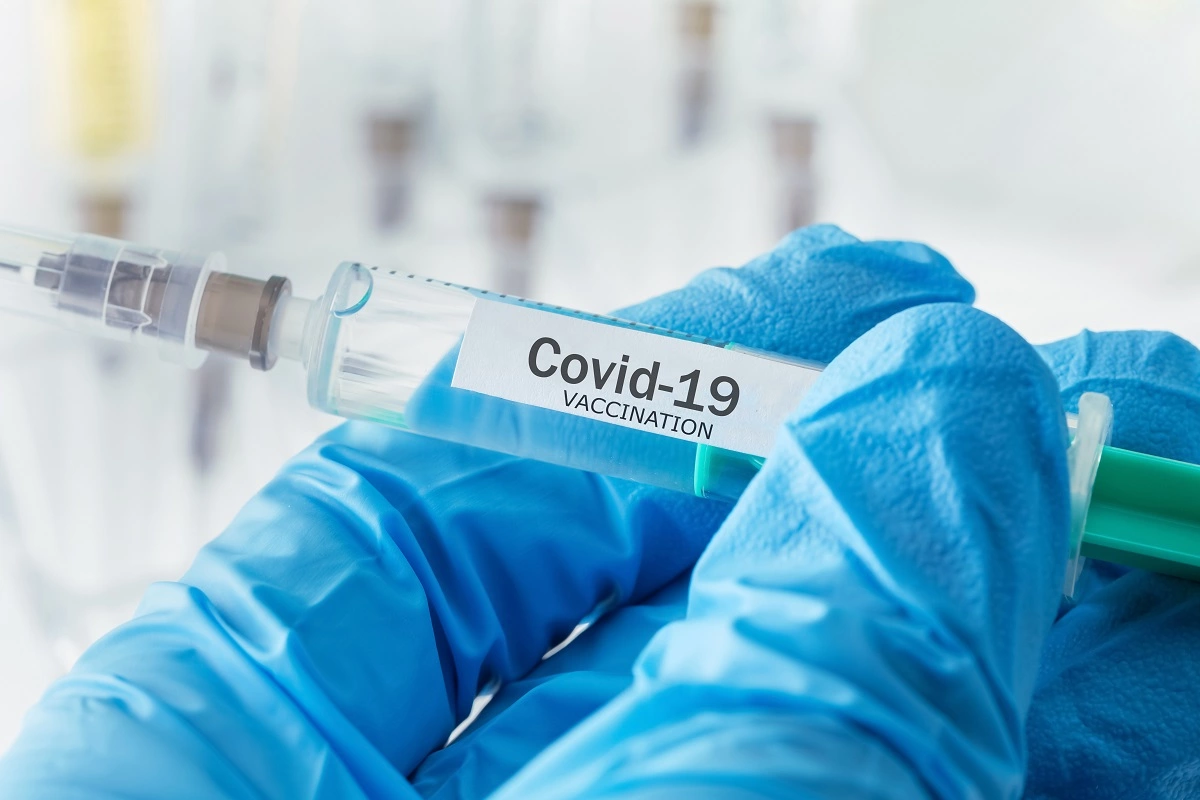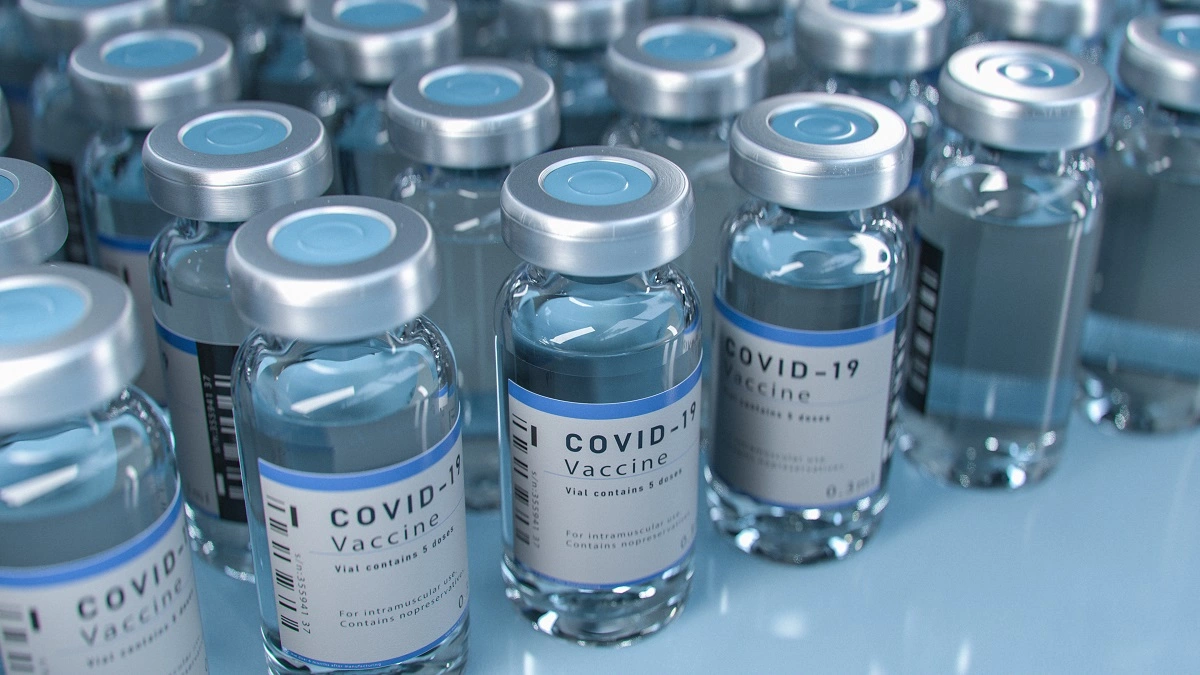COVID-19 vaccine and brain tumours
Can the COVID-19 vaccine affect my brain tumour? With it still being relatively new, that’s a fair question to ask. So, we got the help of a wonderful team of healthcare professionals. And we’ve collected some information about how COVID-19 vaccinations could impact those affected by a brain tumour.
Updated: 27 August 2023

Short summary
In a recent study, a group of people living with brain tumours were given the vaccine and found there were no significant side-effects. However, the vaccine is still relatively new and it is hard to say how you will react to it. So, if you are unsure about taking the vaccine, it’s best to speak to your healthcare team.
On this page, we’ll cover:
- Is the COVID-19 vaccine safe for people living with a brain tumour?
- Can I have the COVID-19 vaccine if I’m having treatment for a brain tumour?
- How can I access the COVID-19 vaccine?
- Can I choose my COVID-19 vaccine?
- What are the COVID-19 vaccine side effects?
Get support
Our kind and approachable Support Team can answer questions you have or provide a listening ear if you need one.
Join our online support groups
Our online support groups are a great place to connect with other people affected by a brain tumour.
Get your free Information Pack
Our Brain Tumour Information Pack can help you better understand your diagnosis and feel confident talking to your medical team.
Is the COVID-19 vaccine safe for people living with a brain tumour?
A 2022 study focused on people living with brain tumours and found that there are no serious side-effects that any vaccine had on them specifically.
The survey consisted of 31 questions, which could be answered anonymously, and was available in 8 different languages. This was opened worldwide to people over 18 years of age who were living with brain tumours. Their caregivers were also included.
While it was available, 965 people from 42 countries completed the survey. And, of those people who took the vaccine (over 90% of those who responded), no one reported any severe side-effects.
But, it is important to remember that everyone is different and people can react differently to the vaccine. So, while it is considered safe for the people who participated in the survey, it’s hard to say exactly how your body will react.
If you have side-effects that aren’t common or your side-effects are lasting longer than a few days, you can speak to your doctor or call 111.

Can I have the COVID-19 vaccine if I’m having treatment for a brain tumour?
You can still receive the COVID-19 vaccination if you are receiving treatment for your brain tumour. Public health experts and cancer specialists have agreed that people living with cancer should receive the vaccine.
Your immune system needs to be working at some level in order to respond to the vaccine. So, it’s possible that they may be slightly less effective for people having chemotherapy or other cancer treatments. But it is still expected that the vaccine will give some useful protection against the virus. And it’s advisable that you have it when possible.
As well as chemotherapy, experts have said that the vaccine can be given to people going through radiotherapy, immunotherapy as well as hormonal therapies.
If your cancer treatment is affecting your immune system, your healthcare team will advise you on the best time to get your COVID-19 vaccine. There may be points during your treatment when the vaccine is likely to be most effective for you.
However, these people, including those on chemotherapy, have been advised to continue to follow social distancing and sanitation advice where possible to reduce their risk of infection, even after vaccination.
How can I access the COVID-19 vaccine?
You can book a COVID-19 vaccination online through the NHS website.
Use this service to book first or second doses of the main vaccine, additional primary doses for people with weakened immune systems, a first booster, or a seasonal booster.
You should always talk to your GP or your medical team if you have any concerns or questions about the vaccines.
Unfortunately, some people have been fraudulently contacted by email or text message by scammers claiming to be offering the opportunity to sign up for the COVID-19 vaccine. This scam instructs people to click a link in the message that takes them to an online form where they are prompted to input personal and financial details.
Remember, the vaccine is only available on the NHS. The NHS will never ask you for bank details or to pay for the vaccine. When you are eligible for the vaccine, the NHS will contact you by letter to arrange your vaccination.
The Action Fraud website has lots of information about what to look for and how to keep yourself safe.

Which COVID-19 vaccine should I have? And is this my choice?
The vaccines people are offered will be appropriate for them. And this decision is based on clinical judgement supported by the advice of JCVI. You cannot choose which one you have.
The decision will take into account individual vaccine characteristics, which may mean they are more suitable for some groups of people, and not others. For example, some may be less well tolerated or effective in certain age groups.
Remember that any vaccines that are available will have been approved because they pass the MHRA’s tests on safety and efficacy, so people should be assured that whatever vaccine they get will be highly effective and protect them from coronavirus.
What are the COVID-19 vaccine side-effects?
Like all medicines, vaccines can cause side effects. But it’s important to remember that not everybody gets them and most of these are mild, short-term effects that should improve in a few days.
As we mentioned earlier, if you are living with a brain tumour you shouldn’t have any additional side-effects in response to the COVID-19 vaccine that directly relates to the tumour. But, your response might be affected by treatments like chemotherapy and radiotherapy. If you are concerned, it’s best to talk to your doctor before getting vaccinated.
With that in mind, more common COVID-19 vaccination side effects could include:
- a sore arm from the injection
- feeling tired
- a headache
- feeling achy
- feeling or being sick
- a high temperature, feeling hot or feeling shivery.
Whatever vaccine you are given, you will also be given information about possible side-effects, how to look out for them and what to do if you experience any.
People with allergies to penicillin, eggs, shellfish are sometimes concerned about having an anaphylactic reaction to the injection. All 3 injections have no contraindications to people with these allergies. However if you were concerned, you can speak to your GP. Also, at the site of injection, everyone is observed for 15 mins post injection anyway by a qualified nurse just in case there are any side effects.
Support and Information Services
Research & Clinical Trials Information
You can also join our active online community.
In this section

Latest updates
Get the latest updates on coronavirus COVID-19 and how it affects you.

Get support
If you need someone to talk to or advice on where to get help, our Support and Information team is available by phone, email or live-chat.
Share your experiences and help create change
By taking part in our Improving Brain Tumour Care surveys and sharing your experiences, you can help us improve treatment and care for everyone affected by a brain tumour.